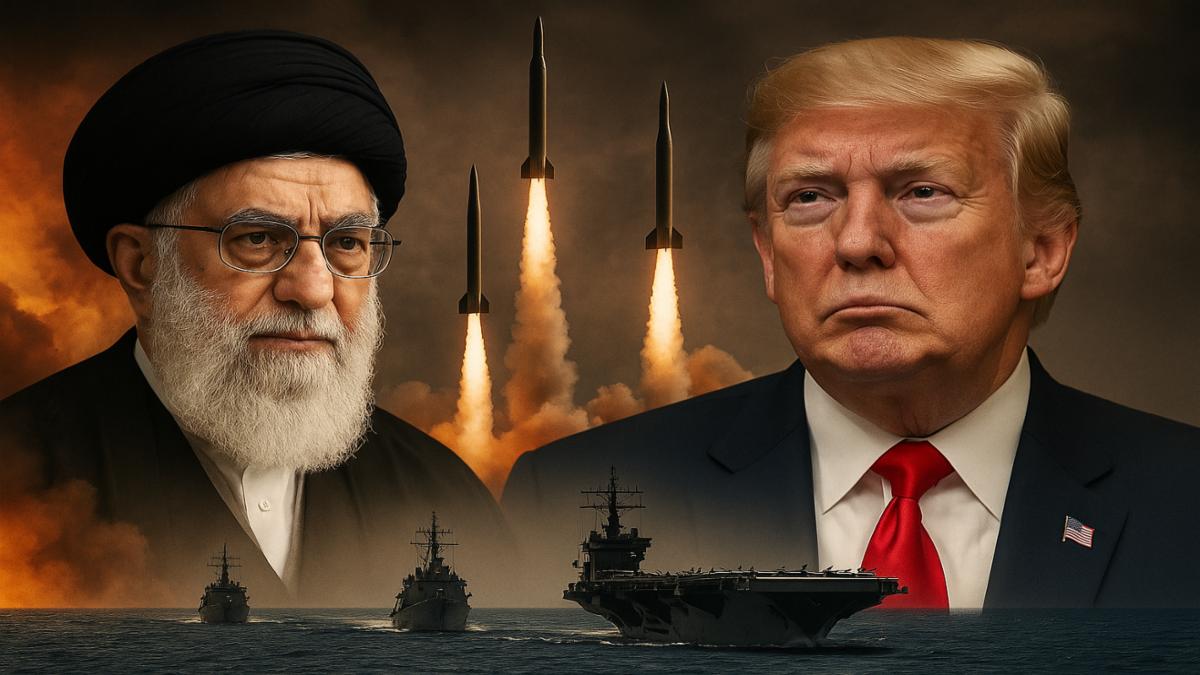Article Body
“Now It’s Our Turn”: Iran’s Firebrand Aide Calls for Strike on US Naval Fleet After Nuclear Blows
June 22, 2025
In what could be the flashpoint the world feared most, Iran’s fiery rhetoric has morphed into a direct call for action.
Hossein Shariatmadari—more than just a newspaper editor, widely seen as the mouthpiece of Supreme Leader Ayatollah Ali Khamenei—has demanded that Iran strike back. But not just anywhere. He wants missiles launched at the US naval fleet in Bahrain and the Strait of Hormuz closed to ships from four Western nations.
His reasoning? “It is now our turn to act,” Shariatmadari thundered through the editorial pages of Kayhan, a hardline publication he leads. The statement dropped just hours after US B-2 stealth bombers reportedly decimated three of Iran’s nuclear facilities—Natanz, Isfahan, and Fordow—in a pre-dawn assault authorized by President Donald Trump.
And just like that, a regional proxy war teetered on the edge of becoming something far more dangerous.
The Fuse Was Already Lit
Let’s rewind.
For weeks, tensions between Iran and Israel have escalated with alarming speed. Israel’s “Operation Rising Lion” was, according to Prime Minister Benjamin Netanyahu, a preemptive strike on Iranian missile factories and command centers. Over 650 Iranians have reportedly died. Iran retaliated with missile strikes of its own, including one that hit a hospital in Israel—a move that many say crosses every conceivable line.
Still, the direct involvement of the United States in bombing Iran’s nuclear facilities marked a terrifying escalation.
President Trump—appearing more like a wartime president than a campaign trail veteran—defended the action from the White House, calling Iran “the bully of the Middle East.” He insisted, “They must now make peace.”
Except, Iran isn’t listening.
A Choke Point Under Threat
If Iran follows through on Shariatmadari’s call, the Strait of Hormuz—a slim waterway through which nearly one-fifth of the world’s oil passes—could become the globe’s most volatile stretch of ocean.
"Closing the Strait isn’t just Iran flexing muscle," said Middle East analyst Dr. Sameera Khoury. "It would be an act with catastrophic economic consequences worldwide. That’s not hyperbole. That’s math."
On social media, the reactions ranged from disbelief to dread.
“If this escalates further, we’re not looking at just oil spikes—we’re looking at world war,” wrote @GeoWatchDaily.
“2025 just said, ‘Hold my beer,’” joked another user, @NukesAndNews.
The International Fallout
Iran’s Foreign Minister Seyed Abbas Araghchi has already denounced the US strikes as a “grave violation” of international law and the UN Charter. “We reserve all options to defend our sovereignty,” he posted on X, formerly Twitter.
What’s more concerning is what’s not being said—China and Russia have remained unusually quiet. And when global powerhouses go silent in moments like these, it usually means negotiations are happening behind very tightly closed doors.
But back in Tehran, the mood is not one of diplomacy.
Shariatmadari’s op-ed reads less like political analysis and more like a battle cry. He urges Iran’s military to take decisive, symbolic steps to demonstrate the Islamic Republic’s unwillingness to be bullied—even if it means courting catastrophe.
No Sign of Backing Down
Despite bombings at three critical sites, Iran’s atomic agency claims that its nuclear program remains “unshaken” and continues “underground.” Meanwhile, Israeli airstrikes—now nearly a week in—show no signs of slowing.
A UN emergency meeting saw IAEA head Rafael Grossi warn of “high release of radioactivity” if Iran’s Bushehr reactor is attacked, a scenario that remains frighteningly plausible.
FAQs
Q1: What is the Strait of Hormuz and why is it important?
The Strait of Hormuz is a narrow waterway linking the Persian Gulf to the Arabian Sea. Around 20% of global oil shipments pass through it, making it one of the most strategically vital maritime routes on Earth.
Q2: Can Iran legally close the Strait of Hormuz?
While Iran claims territorial rights over parts of the strait, international law—particularly the UN Convention on the Law of the Sea—requires passage be allowed. A forced closure would be considered an act of war by many nations.
Conclusion
The Middle East has always danced with fire. But this time, it feels different. This time, the match may have already been lit.
And now, the world watches—nervously, breathlessly—to see whether this was the beginning of something larger, or simply the edge of it.
Let’s hope it’s the latter.

Comments